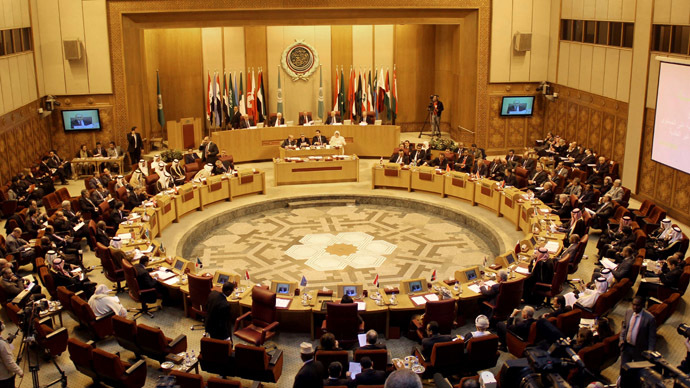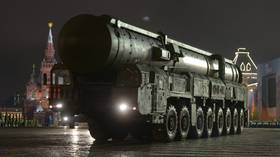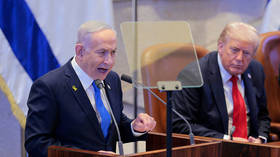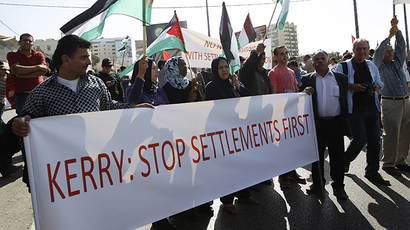Arab League slams US proposal to let IDF guard West Bank

The Arab League has rejected a US security plan that would involve Israel’s military presence on the border between the West Bank and Jordan for 10 years. The plan was proposed by the US Secretary of State as a part of Israeli-Palestinian talks.
The League’s Secretary-General Nabil Elaraby has said there could
be “not one” Israeli soldier in the territory of a
future Palestine, speaking at an emergency meeting in Cairo,
called at the request of Palestinian President Mahmoud Abbas.
The United States has recently presented "some thoughts"
on security arrangements, according to Secretary of State John
Kerry, one of which reportedly was a proposal that the Israeli
Defense Force remains in the Jordan Valley for 10 years after the
establishment of a future Palestinian state.
Palestinian officials have criticized the plan saying that the US
was to address Israeli concerns about a potential influx of
militants and weapons. Abbas said he could accept the deployment
of US troops there.
Elaraby also stressed during the Arab League meeting that no
peace deal would work between Palestinian Authority and Israel
under such conditions. However, the resolution he read at the end
of the assembly, did not have harsh condemnation of the US plan,
such as seen in a report that was circulated before the meeting.
The report, seen by Reuters, said the US security proposals
“achieved Israeli security expansionist demands, and
guaranteed [Israel's] continued control of [the Jordan Valley] on
the security pretext.”
It also described them as “an American retreat,” saying
that Washington and Tel Aviv are linking negotiations on
political issues to the Palestinians' approval to “the
American security solution.” “This is what the Palestinian side
rejects,” the report read.
It also offered the Arab League nations to support Palestinians
by objecting to “all the Israeli plans and policies aimed at
changing the demographic and geographic situation in the occupied
Palestinian territories, including in Jerusalem,” as quoted
by Haaretz.

While John Kerry offered no details into the US security
proposals, President Abbas has claimed the proposed security plan
supports Israel’s position in the region by securing IDF presence
in the Jordan River Valley, at the same time delaying Palestinian
demands.
The Palestinian leader instructed his delegation to object to any
partial proposal or interim deal, Palestinian chief negotiator
Saeb Erekat told the Palestinian news agency on Saturday. The
diplomat added that any arrangement reached within the agreed
timeframe, before April 29, must be a final one.
“We are not talking about a final peace treaty but only a
framework agreement, which is halfway to a final treaty,”
Erekat said earlier on Friday.
According to Kerry’s initial proposal, presented earlier in
December, border crossings into Jordan would be under joint
Israeli-Palestinian control, possibly with US troop presence.
It would also require the Israeli military contingent to leave
most of West Bank, except for the Jordan Valley, prohibit the IDF
from operating in Palestinian lands to combat the extremist
threat. Washington also offered investments into Israel’s
intelligence capabilities to help counter any threats.
When Kerry presented the proposal earlier this month he said,
that “if Israel's security can't increase as a result of an
agreement, it's very difficult to make an agreement. Obviously,
security is paramount in the minds of the Prime Minister
[Benjamin Netanyahu] and his team with respect to their ability
to move forward on other issues."
Israel and the Palestinians resumed direct peace negotiations in
July after a three-year break. Since Israeli and Palestinian
teams visited Washington, John Kerry has been shuttling between
the sides brokering a deal, but so far no concrete progress has
been made.














